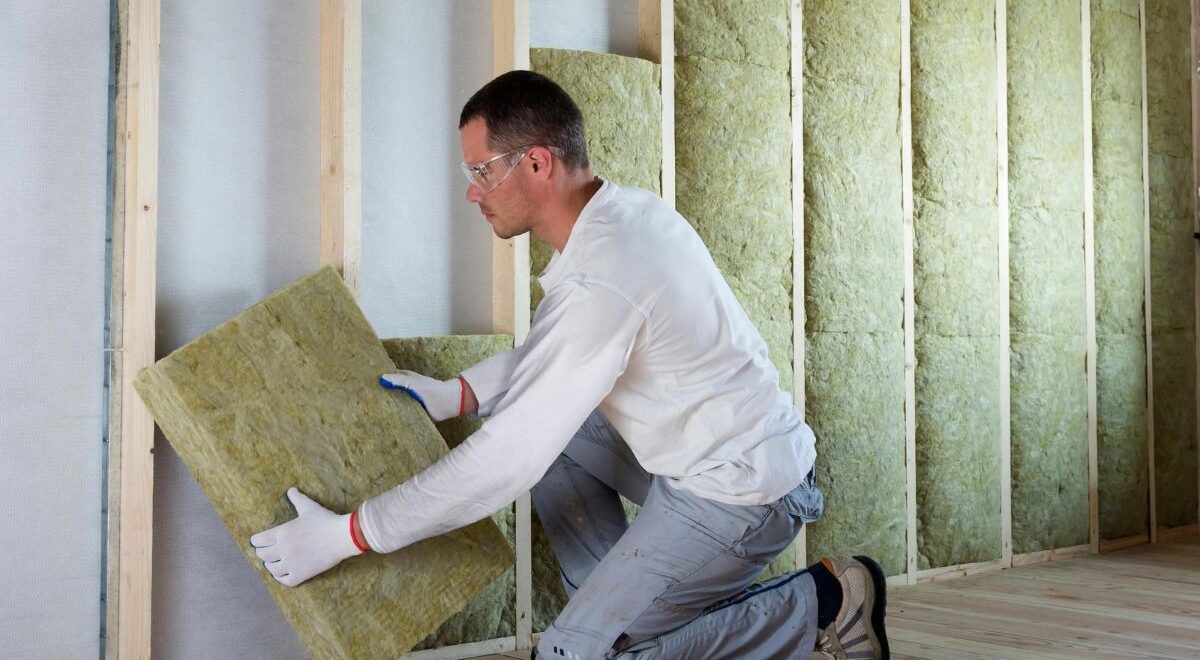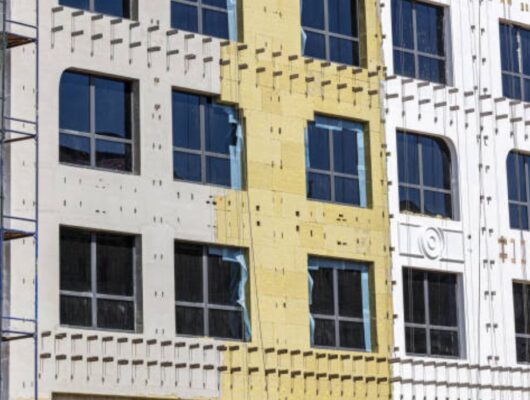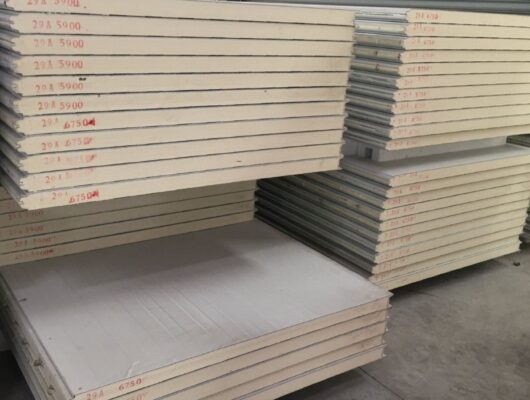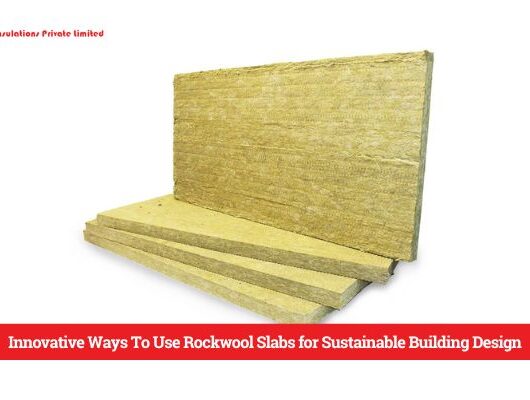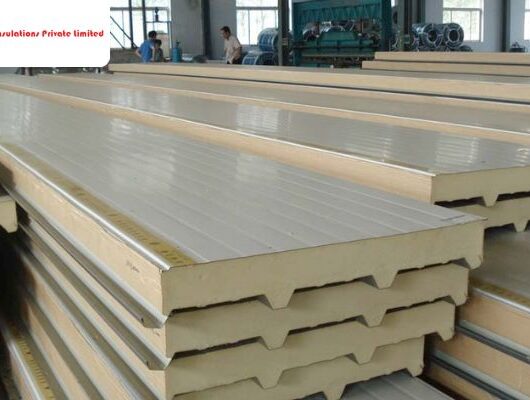Rockwool slabs, also known as stone wool or mineral wool is one of the best choice for both home and industrial insulation. So in this article we’ll understand the benefits of using Rockwool slabs, highlighting their thermal performance, fire resistance, soundproofing capabilities, durability, and environmental friendliness.
1) Superior Thermal Performance
One of the primary functions of insulation is to maintain a consistent indoor temperature by reducing heat transfer. Rockwool slabs excel in this regard due to their unique composition. Made from natural basalt rock and recycled slag, these slabs have a fibrous structure that traps air, providing excellent thermal resistance.
- Energy Efficiency: By minimizing heat loss in winter and heat gain in summer, Rockwool slabs contribute significantly to energy savings. Homes and buildings insulated with Rockwool require less energy for heating and cooling, resulting in lower utility bills.
- Comfort: Maintaining a stable indoor temperature enhances overall comfort, ensuring that living and working spaces remain pleasant throughout the year.
2) Exceptional Fire Resistance
Fire safety is a paramount concern in both residential and industrial settings. Rockwool slabs offer outstanding fire resistance, which can be a lifesaver in case of an emergency.
- Non-Combustible: Rockwool is made from volcanic rock, which is naturally non-combustible. It can withstand temperatures up to 1,000°C without melting or producing toxic fumes.
- Fire Containment: In the event of a fire, Rockwool slabs help to contain the spread of flames. This not only protects property but also provides critical time for occupants to evacuate safely.
- Compliance: Using Rockwool can help buildings meet stringent fire safety regulations and standards, reducing the risk of penalties and enhancing overall safety.
3) Enhanced Acoustic Insulation
Noise pollution can be a significant issue, especially in urban areas and industrial environments. Rockwool slabs offer excellent soundproofing properties, making them ideal for applications where noise reduction is essential.
- Sound Absorption: The dense, fibrous structure of Rockwool effectively absorbs sound waves, reducing noise transmission between rooms and from outside sources.
- Improved Privacy: In homes, this means quieter, more peaceful living spaces. In industrial settings, it translates to a reduction in noise-related stress and improved worker productivity.
- Versatile Applications: Rockwool slabs can be used in walls, ceilings, and floors to enhance acoustic insulation in various types of buildings, from residential homes to commercial offices and factories.
4) Durability and Longevity
Investing in insulation is a long-term decision, and the durability of the material is a crucial factor. Rockwool slabs are renowned for their robustness and longevity.
- Moisture Resistance: Unlike some other insulation materials, Rockwool does not absorb water. This resistance to moisture prevents the growth of mold and mildew, which can compromise the structural integrity of a building and affect indoor air quality.
- Dimensional Stability: Rockwool slabs retain their shape and insulating properties over time, even under varying temperature and humidity conditions. This ensures consistent performance throughout the life of the building.
- Pest Resistance: The inorganic nature of Rockwool makes it unattractive to pests, reducing the risk of infestations that can damage insulation materials and compromise their effectiveness.
5) Environmental Friendliness
Sustainability is increasingly important in building practices. Rockwool slabs contribute positively to environmental goals in several ways.
- Natural and Recycled Materials: Rockwool is made from abundant natural basalt rock and recycled industrial slag, reducing the reliance on non-renewable resources.
- Energy Savings: The thermal efficiency of Rockwool slabs leads to reduced energy consumption for heating and cooling, lowering greenhouse gas emissions and helping to combat climate change.
- Recyclability: At the end of its life, Rockwool insulation can be recycled, further reducing its environmental impact.
6) Ease of Installation and Versatility
Rockwool slabs are user-friendly and versatile, making them suitable for a wide range of applications.
- Easy to Cut and Fit: The slabs can be easily cut to size and fitted into various spaces, including walls, floors, ceilings, and roofs. This flexibility makes them suitable for both new construction and retrofit projects.
- Compatibility: Rockwool can be used alongside other building materials and insulation types, providing a comprehensive solution to meet specific insulation needs.
- DIY-Friendly: For homeowners who prefer to undertake their own projects, Rockwool slabs are straightforward to install, provided safety guidelines are followed.
7) Health and Safety Benefits
Choosing the right insulation material can also impact the health and safety of building occupants.
- Non-Toxic: Rockwool does not contain harmful chemicals or irritants. It is safe to handle with appropriate protective gear and does not release volatile organic compounds (VOCs) into the indoor environment.
- Improved Indoor Air Quality: By preventing mold growth and reducing noise pollution, Rockwool contributes to a healthier indoor environment. Good air quality is essential for overall health and well-being, particularly for those with respiratory conditions or allergies.
8) Cost-Effectiveness
While the initial cost of Rockwool slabs may be higher than some other insulation materials, their long-term benefits often outweigh the upfront expense.
- Energy Savings: The reduction in heating and cooling costs over the lifespan of the building can result in significant financial savings.
- Maintenance and Replacement: The durability and resistance to moisture and pests mean that Rockwool requires minimal maintenance and is less likely to need replacement, further enhancing its cost-effectiveness.
- Insurance Benefits: Enhanced fire resistance can lead to lower insurance premiums, providing additional financial benefits.

